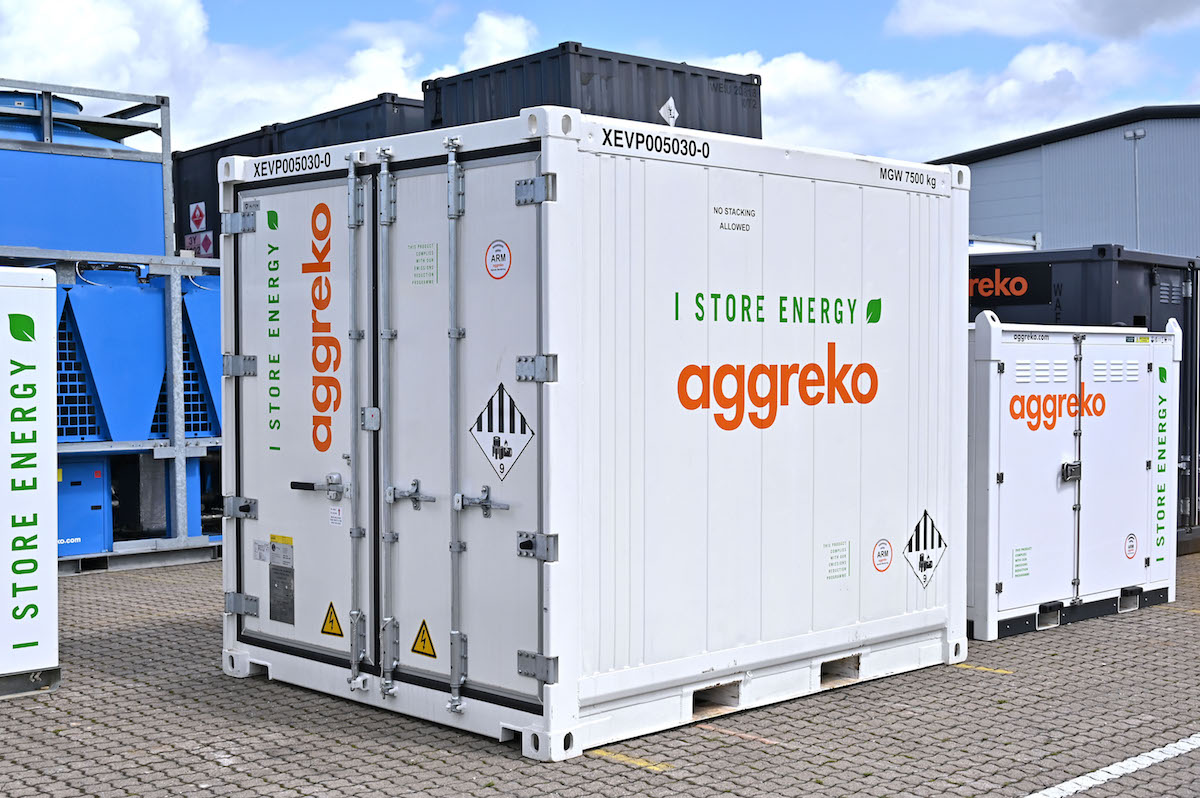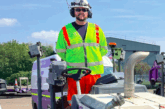
Battery energy storage systems (BESS) have a vital role to play in helping construction address the challenge of noise and emissions restrictions on site. Tom Adlington, sector sales manager, Building Services & Construction at Aggreko shares his thoughts on why the effective use of BESS as part of a hybrid power package will be increasingly important.
Increased pressure on emission regulations, decarbonisation goals, decreasing fuel consumption on site, variable load concerns, capex spending – the challenges construction managers need to overcome can seem endless. Yet, these challenges can be addressed effectively through the use of new technologies, with one key example being BESS incorporated within a hybrid temporary power package.
Using BESS can, for example, reduce noise and emissions, and address capacity limitations from constrained power connections or limited generator capacity. However, to realise the full benefits of BESS, it is vital that it is used optimally.
So, how can this be achieved?
- Correctly understanding load profiles
Understanding load profiles may seem simple but recognising what exactly needs to be powered when considering BESS for a hybrid power solution is critical., the load profile of a site needs to be understood. Whether power requirements will change over time will also have significant impact on a site’s overall power needs.
As part of assessing the load profile, peak demand, low demand, and the base load should be considered. For peak demand, the highest power requirements should be identified, and any high inrush currents caused by power-hungry machinery or motor starts can be noted. Extended periods with minimal power demand or power loads that persist for extended durations should also be considered.
Any patterns or timings can then be identified to establish where power fluctuations occur. Therefore, by understanding the load profile, we can see where BESS can add value, and implement the best possible generator and BESS combination.
This makes it possible to ‘rightsize’ or downsize the generator. BESS can provide power assistance during short bursts of high-power demand, enabling the generator to be sized according to the average/base load of the application. In turn the BESS enables the generator to be switched off during prolonged periods of low loads, only to be called upon when the state of charge is low, ensuring the generator always operates at an efficient capacity. Using smart technology, such as Aggreko Remote Monitoring (ARM), enables the use of historical or anticipated load profile information to recommend the right hybrid temporary power package dependent on requirements and give an idea of emissions and fuel reduction from incorporating greener technologies.
- Consider environmental regulations
Noise and emissions are increasingly becoming critical factors for decision makers. BESS can help comply with legal or regulatory restrictions affecting a project and provide a greener intermediate power supply during peak demand. This was a factor for Sir Robert McAlpine, which had a major construction project where a reduction of 85% in emissions was made across five live tower cranes when paired with a BESS supplied by Aggreko.
The same applies for urban sites where quiet periods during specific hours must be adhered. BESS can provide a quieter alternative compared to other traditional power sources, such as diesel generators.
- Determine costs
Cost is one of the first things that comes to mind when considering sourcing additional power supply. After all, balancing the figures is what any project relies on and bringing in new equipment must be carefully accounted for. Temporary BESS solutions allow users to access new technology without the need for upfront CAPEX. Incorporating BESS into a wider hybrid power package leads to reduced fuel costs and emissions.
- Consider Controls
Controls can help further optimise BESS power distribution and support system reliability by controlling and monitoring parameters. Remote monitoring can also enhance flexibility and responsiveness while driving cost optimisation through reducing fuel consumption.








